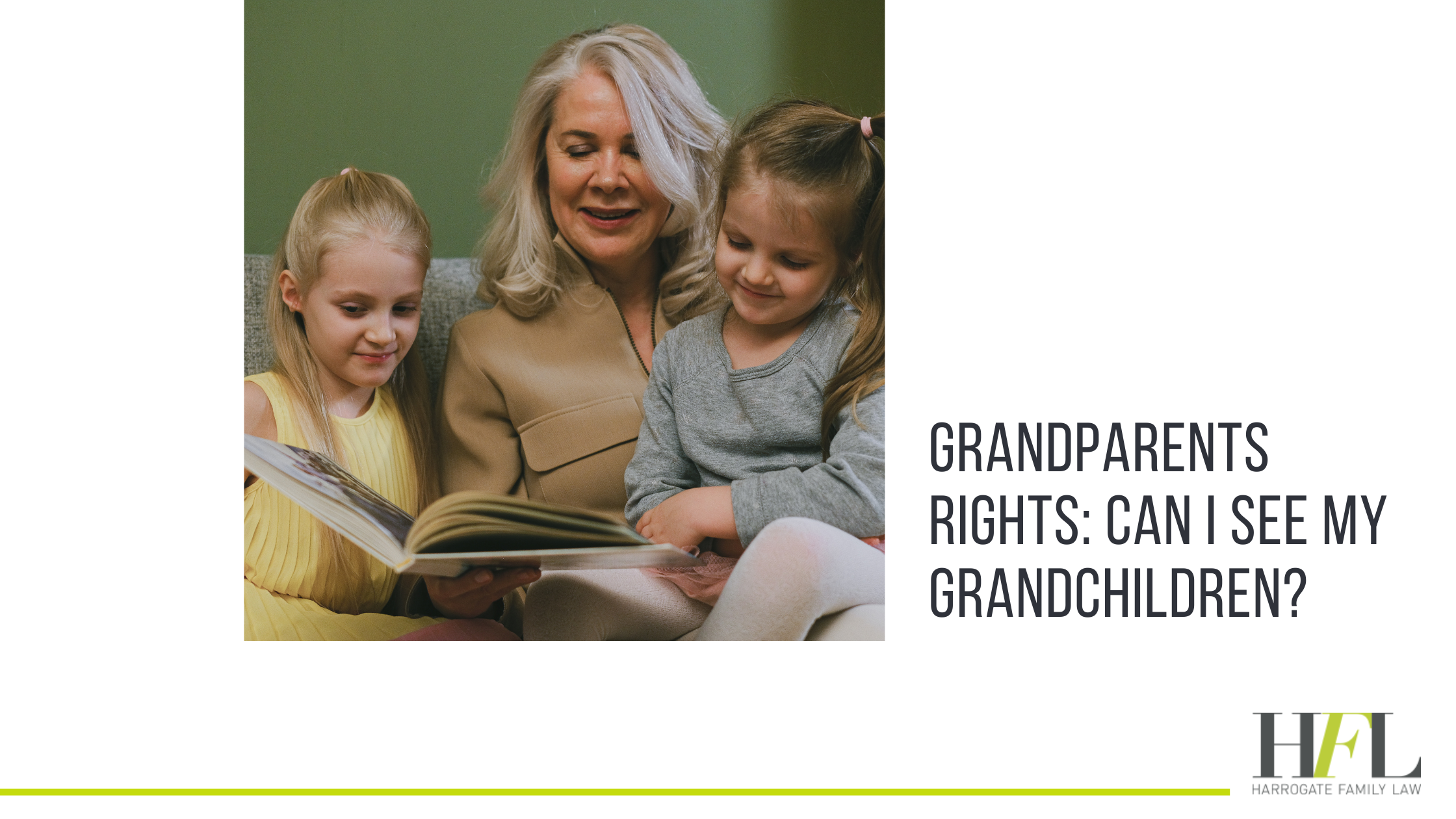Sometimes during a divorce, disagreements or issues can arise when it comes to arrangements for children. This can be incredibly stressful, not only for those immediately involved, but for the wider family too. Grandparents, for example, often worry about what their relationship with their grandchildren will be in the event that their own child’s relationship or marriage breaks down.
For many, grandchildren are a big and very important part of life – and vice versa. As more and more grandparents take on a bigger childcare role whilst parents are at work, and provide deposits for their children to buy homes as they start family life, when a family breakdown occurs, it can have a significant impact. So what happens if the contact they have with their grandparents is suddenly called into question? Let’s take a look.
What rights do grandparents have?
Whilst grandparents don’t have an automatic right to see their grandchildren, that’s not to say they don’t have any rights at all. If one or other of the children’s parents refuse to allow them to be able to spend time with their grandchildren, there are a number of routes they can take.
Mediation
If it’s not been possible to come to an agreement within the family unit, mediation could be a sensible next step. If the circumstances are right, it can allow family members to air their concerns and help to minimise conflict and disagreements. It can also demonstrate a willingness to listen to the other side’s point of view and be prepared to find a solution that works for everyone.
If successful, mediation may result in a written agreement setting out the arrangements grandparents will have. It’s important to remember however, that such agreements are not legally binding, but they are not worthless.
Can grandparents apply to the family court for a resolution?
In short, yes. But again, this isn’t an automatic right. Unless the child has been living with them for a year or more prior to applying, grandparents will need to seek the permission of the court in order to make an application.
Whether or not such an application will be successful depends on a number of considerations, including:
- The relationship between the grandparent and grandchildren
- Whether the application would cause any harm through disruption to the child
- The nature of the application
The first step before making any application to court is to seek legal advice. Not only will this provide the legal advice and guidance necessary, it will also offer an opportunity to have an objective discussion about the merits of the application and the prospect of success.
If there’s a pre-existing relationship, permission is usually granted, meaning that grandparents can then apply for a Child Arrangements Order setting out any contact they’ll have and what that looks like.
Ultimately, when deciding whether to make a Child Arrangements Order, the court will consider a number of factors, and conclude whether allowing contact is in the child’s best interests. For example, how do the children (depending on their age) feel about the situation? Will it disrupt their current living arrangements or family life? How will it impact other members of the children’s household? It’s worth knowing that the court will make a decision based on the benefit to the child and not the benefit to the grandparents.
This situation can be a stressful and overwhelming one, whether you’re a grandparent wanting to see your grandchildren, or a parent worried about the effect that contact will have. This is why expert legal advice is vital, to ensure that you’re given the objective advice you need at a difficult time.
If you’re worried about this, or any other family law matter, don’t hesitate to get in touch with our friendly team of experts. At Harrogate Family Law, we have a wealth of knowledge and experience and we’re here to help.






